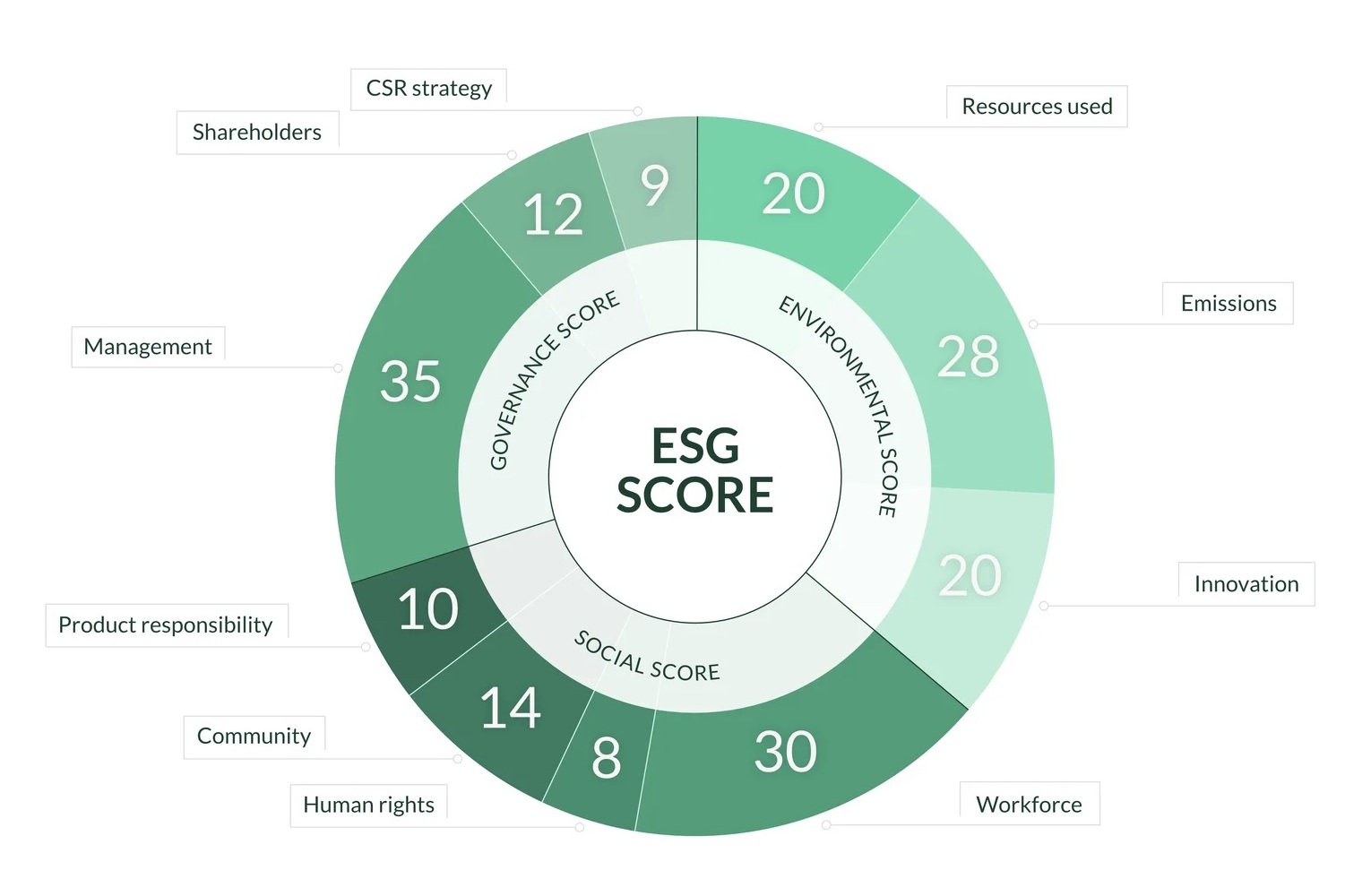CSR Expenditure of a company for a particular year is determined as 2 per cent of the average profit over preceding three financial years. As per the CSR laws, the 2 % of the average profit is calculated as profit before tax. Further, the expenses in salaries and other administrative work towards CSR function are also considered as legitimate part of CSR expenditure by a company.
Read here the Frequently Asked Questions (FAQs) on different aspects of CSR expenditure, profit calculation for determining CSR budget, eligible expenses on administrative overheads, etc…
Q: How is average net profit calculated for the purpose of section 135 of the Act? Whether ‘profit before tax’ or ‘profit after tax’ is used for such computation?
A: Profit Before Tax (PBT) is used for computation of net profit under section 135 of the Act. The average net profit for the purpose of determining the spending on CSR activities is computed in accordance with the provisions of section 198 of the Act which specifies certain additions/deletions (adjustments) to be made while calculating the net profit of a company (mainly it excludes capital payments/receipts, income tax, set-off of past losses).
Q: What is the meaning of the term ‘administrative overheads? What is the maximum permissible limit for administrative overheads?
A: Administrative overheads are the expenses incurred by the company for ‘general management and administration’ of CSR functions. However, the expenses which are directly incurred for the designing, implementation, monitoring, and evaluation of a particular CSR project or programme, shall not be included in the administrative overheads.
Administrative overheads generally comprise of items such as employee costs, utilities, office supplies, legal expenses, etc. However, expenses which are attributed to the project implementation shall be included in project cost only.
Example: Salary and training for the employees working in the CSR division of a company, stationery cost, travelling expenses, etc. may be categorised as administrative overheads. However, salary of school teachers or other staff, etc. for education-related CSR projects shall be covered under education project cost.
The maximum permissible limit for administrative overheads is five per cent of the total CSR expenditure of the company for the financial year.
Q: Are administrative overheads applicable only for expenses incurred by the company, or can they be applied to expenses incurred by the implementing agency as well?
A: According to rule 2(1)(b) of the Companies (CSR Policy) Rules, 2014, administrative overheads mean the expenses incurred by the company in the general management and administration of CSR functions in the company. Therefore, expenses incurred by implementing agencies on the management of CSR activities shall not amount to administrative overheads and cannot be claimed by the company.
Q: What is the meaning of surplus arising from CSR activities? How can this surplus be utilised?
A: Surplus refers to income generated from the spend on CSR activities, e.g., interest income earned by the implementing agency on funds provided under CSR, revenue received from the CSR projects, disposal/sale of materials used in CSR projects, and other similar income sources. The surplus arising out of CSR activities shall be utilised only for CSR purposes.
Q: Whether contribution to the corpus of an entity is an admissible CSR expenditure?
A: No, the provision relating to contribution to corpus as admissible CSR expenditure has been amended and the contribution to corpus of any entity is not an admissible CSR expenditure w.e.f. 22nd January, 2021.
Q: Whether expenses related to transfer of capital asset as provided under rule 7(4) of Companies (CSR Policy) Rules, 2014, will qualify as admissible CSR expenditure?
A: Yes, the expenses relating to transfer of capital asset such as stamp duty and registration fees, will qualify as admissible CSR expenditure in the year of such transfer.
Q: If a company spends more than the requirement provided under section 135, can that excess amount be set off against the mandatory 2% CSR expenditure in succeeding financial years?
A: Yes, the excess amount can be set off against the required 2% CSR expenditure up to the immediately succeeding three financial years subject to compliance with the conditions stipulated under rule 7(3) of the Companies (CSR Policy) Rules, 2014. This position is applicable from 22nd January, 2021 and has a prospective effect. Thus, no carry forward shall be allowed for the excess amount spent, if any, in financial years prior to FY 2020-21.
Q: If a company cannot take the benefit of set off of excess amount spent in the previous financial year because of non-applicability of CSR provisions, will the excess amount lapse?
A: Yes, the law states that the excess CSR amount spent can be carried forward up to immediately succeeding three financial years; thus, in case any excess amount is left for set off, it will lapse at the end of the said period.
Example: In FY 2020-21 a company had spent Rs. 2 crores in excess. In FY 2021-22, it sets-off Rs. 50 lakhs from such excess. However, from FY 2022-23, the company is no longer subject to CSR provisions under section 135(1). In such case, the company may continue to retain the remaining excess CSR of Rs. 1.50 crores up to FY 2023-24, and thereafter the same shall lapse.
Q: Whether it is mandatory for companies to carry out CSR in their local areas?
A: The first proviso to section 135(5) of the Act provides that the company shall give preference to local areas and the areas around where it operates. Some activities in Schedule VII such as welfare activities for war widows, art and culture, and other similar activities, transcend geographical boundaries and are applicable across the country. With the advent of Information & Communication Technology (ICT) and emergence of new age businesses like e-commerce companies, process-outsourcing companies, and aggregator companies, it is becoming increasingly difficult to determine the local area of various activities.
The spirit of the Act is to ensure that CSR initiatives are aligned with the national priorities and enhance engagement of the corporate sector towards achieving Sustainable Development Goals (SDGs).
Thus, the preference to local area in the Act is only directory and not mandatory in nature and companies need to balance local area preference with national priorities.
Q: Whether CSR expenditure of a company can be claimed as a business expenditure?
A: No, the amount spent by a company towards CSR cannot be claimed as business expenditure. Explanation 2 to section 37(1) of the Income Tax Act, 1961 which was inserted through the Finance Act, 2014 provides that any expenditure incurred by an assessee on the activities relating to CSR referred to in section 135 of the Companies Act, 2013 shall not be deemed to be an expenditure incurred by the assessee for the purposes of the business or profession.
Q: What tax benefits can be availed under CSR?
A: No specific tax exemptions have been extended to CSR expenditure. The Finance Act, 2014 also clarifies that expenditure on CSR does not form part of business expenditure.
Q: Whether contribution in kind can be monetized to be shown as CSR expenditure?
A: The requirement comes from section 135(5) that states that "The Board of every company shall ensure that it spends…" Therefore, CSR contribution cannot be in kind and monetized.
Q: Can CSR expenditure be incurred on activities beyond Schedule VII?
A: No, CSR expenditure cannot be incurred on activities beyond Schedule VII of the Act. The activities undertaken in pursuance of the CSR policy must be relatable to Schedule VII of the Companies Act, 2013. The items enlisted in Schedule VII of the Act are broad-based and are intended to cover a wide range of activities. The entries in the said Schedule VII must be interpreted liberally to capture the essence of the subjects enumerated in the said Schedule.
Q: What are the different modes of incurring CSR expenditure?
A: CSR expenditure can be incurred in multiple modes:
(i) ‘Activities route’, which is a direct mode wherein a company undertakes the CSR projects or programmes as per Schedule VII of the Act, either by itself or by engaging implementing agencies as prescribed in Companies (CSR Policy) Rules, 2014.
(ii) ‘Contribution to funds route', which allows the contributions to various funds as specified in Schedule VII of the Act.
(iii) Contribution to incubators and R&D projects, as specified in item (ix)(a) and contribution to institutes/organisations, engaged in research and development activity, as specified under item (ix)(b) of Schedule VII of the Act.
Q: Which are the funds specified in Schedule VII of the Act for the purpose of CSR contribution?
A: Contributions to the following funds shall be admissible as CSR expenditure:
(i) Swachh Bharat Kosh
(ii) Clean Ganga Fund
(iii) Prime Minister’s National Relief Fund (PMNRF)
(iv) Prime Minister’s Citizen Assistance and Relief in Emergency Situations Fund (PM CARES Fund)
(v) Any other fund set up by the Central Government and notified by the Ministry of Corporate Affairs, for socio-economic development and relief and welfare of the Scheduled Castes, the Scheduled Tribes, other backward classes, minorities and women.
Q: Will contribution to any other fund set up for carrying out the activities mentioned in Schedule VII of the Act, be an admissible CSR expenditure?
A: No, the Act does not recognise any contribution to any other fund, which is not specifically mentioned in Schedule VII, as an admissible CSR expenditure.
Q: Can CSR funds be utilised to fund Government schemes?
A: The objective of CSR provisions is to involve the corporates as partners in the social development process.
Use of corporate innovations and management skills in the delivery of ‘public goods’ is at the core of CSR implementation by the companies. Therefore, CSR should not be interpreted as a source of financing the resource gaps in Government Schemes. However, the Board of the eligible company may undertake similar activities independently subject to fulfilment of Companies (CSR Policy) Rules, 2014.
Q: Whether involvement of employees of a company in their CSR projects can be monetized and accounted for under the head of ’CSR expenditure’?
A: No, involvement of employees in CSR projects of a company cannot be monetized. Contribution and involvement of employees in CSR activities of the company will no doubt generate interest/pride in CSR work and promote transformation from Corporate Social Responsibility (CSR) as an obligation to Socially Responsible Corporate (SRC) in all aspects of their functioning. Companies, therefore, should be encouraged to involve their employees in CSR activities.




















.jpg)


